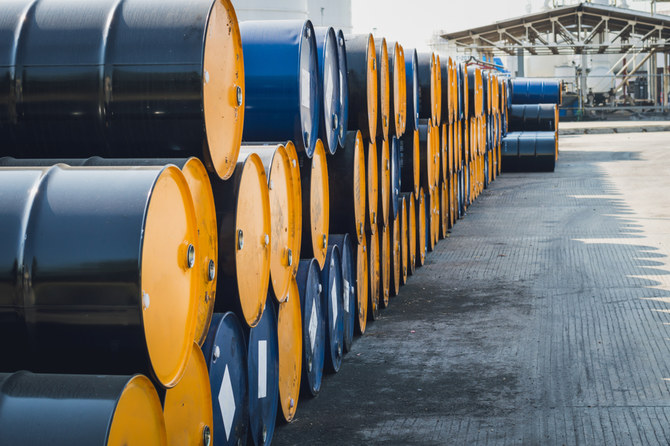TOKYO: Oil prices rose on Friday as concerns that a Russian ban on fuel exports could tighten global supply outweighed fears that further US interest rate hikes could dent demand, but they were still headed for their first weekly loss in four weeks, according to Reuters.
Brent futures climbed 50 cents, or 0.5 percent, to $93.80 a barrel by 6:50 a.m. Saudi time, while US West Texas Intermediate crude futures gained 63 cents, or 0.7 percent, to $90.26 a barrel.
Both benchmarks were on track for a small weekly drop after gaining more than 10 percent in the previous three weeks amid concerns about tight global supply as the Organization of the Petroleum Exporting Countries and its allies maintain production cuts.
“Trading remained choppy amid a tug-of-war between supply fears that were reinforced by a Russian ban on fuel exports and worries over slower demand due to tighter monetary policies in the United States and Europe,” said Toshitaka Tazawa, an analyst at Fujitomi Securities Co. Ltd.
“Going forward, investors will focus on whether the OPEC+ production cuts are being implemented as promised and whether the rise in interest rates will reduce demand,” he said, predicting WTI to trade in a range of around $90-$95.
Russia temporarily banned exports of gasoline and diesel to all countries outside a circle of four ex-Soviet states with immediate effect to stabilize the domestic fuel market, the government said on Thursday.
The shortfall, which will force Russia’s fuel buyers to shop elsewhere, caused heating oil futures to rise by nearly 5 percent on Thursday.
“Crude oil bounced off a session low after Russia banned diesel exports, which included gasoline. The action reversed a downside movement in crude markets following the hawkish Fed decision on Thursday,” said Tina Teng, an analyst at CMC Markets, in a note.
“However, mounting fears of a recession in the Eurozone could continue pressuring oil prices.”
The US Federal Reserve on Wednesday maintained interest rates, but stiffened its hawkish stance, projecting a quarter-percentage-point increase to 5.50-5.75 percent by year-end.
That buoyed fears that higher rates could dampen economic growth and fuel demand while boosting the US dollar to its highest since early March, making oil and other commodities more expensive for buyers using other currencies.
The Bank of England mirrored the Fed and held interest rates on Thursday after a long run of hikes, but said it was not taking a recent fall in inflation for granted.
A European Central Bank governing council member said the central bank will most likely keep interest rates stable at its next policy meeting.














